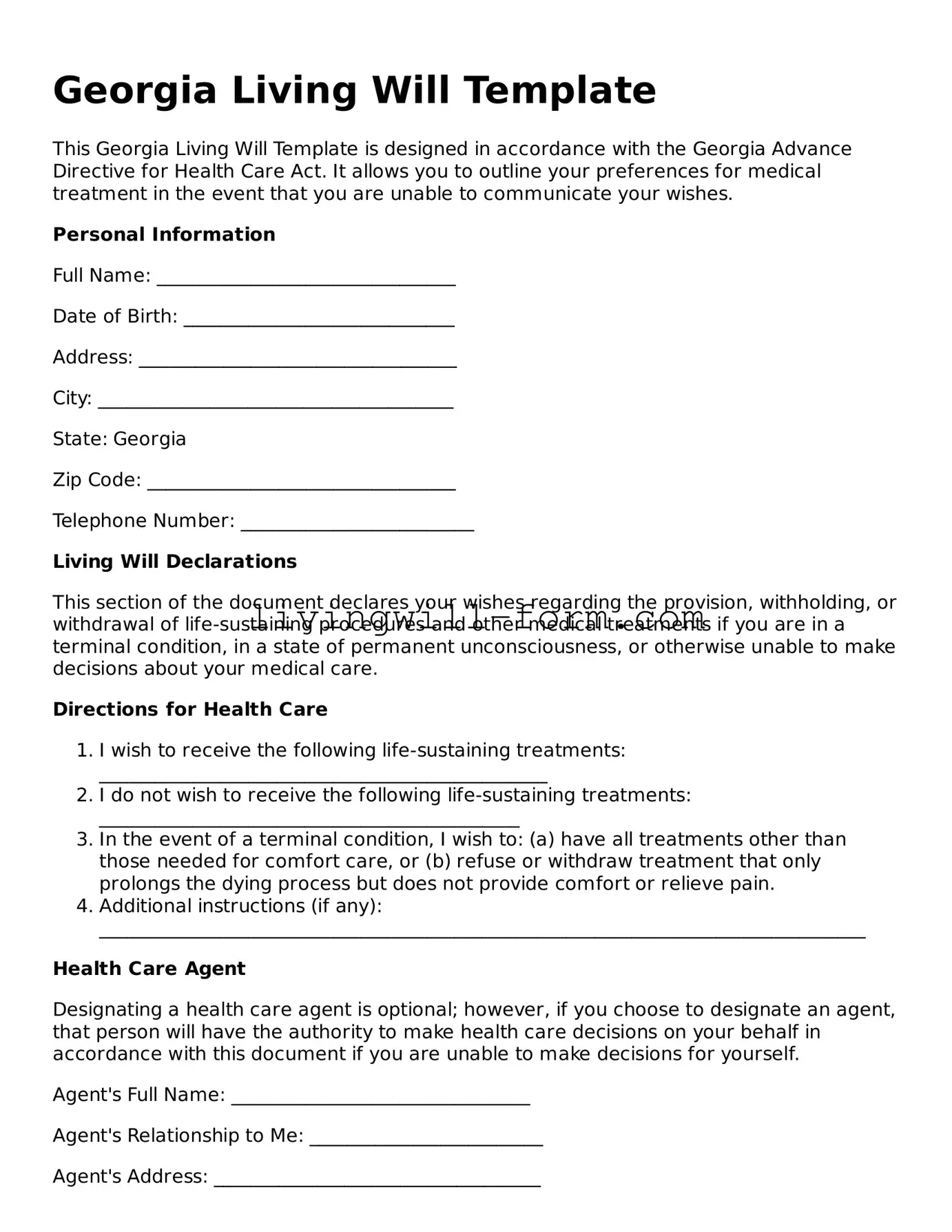Georgia Living Will Template
This Georgia Living Will Template is designed in accordance with the Georgia Advance Directive for Health Care Act. It allows you to outline your preferences for medical treatment in the event that you are unable to communicate your wishes.
Personal Information
Full Name: ________________________________
Date of Birth: _____________________________
Address: __________________________________
City: ______________________________________
State: Georgia
Zip Code: _________________________________
Telephone Number: _________________________
Living Will Declarations
This section of the document declares your wishes regarding the provision, withholding, or withdrawal of life-sustaining procedures and other medical treatments if you are in a terminal condition, in a state of permanent unconsciousness, or otherwise unable to make decisions about your medical care.
Directions for Health Care
- I wish to receive the following life-sustaining treatments: ________________________________________________
- I do not wish to receive the following life-sustaining treatments: _____________________________________________
- In the event of a terminal condition, I wish to: (a) have all treatments other than those needed for comfort care, or (b) refuse or withdraw treatment that only prolongs the dying process but does not provide comfort or relieve pain.
- Additional instructions (if any): __________________________________________________________________________________
Health Care Agent
Designating a health care agent is optional; however, if you choose to designate an agent, that person will have the authority to make health care decisions on your behalf in accordance with this document if you are unable to make decisions for yourself.
Agent's Full Name: ________________________________
Agent's Relationship to Me: _________________________
Agent's Address: ___________________________________
Agent's Telephone Number: __________________________
Successor Health Care Agent (Optional)
In the event my primary agent is unable or unwilling to serve, I designate the following person as my successor health care agent:
Successor Agent's Full Name: ________________________________
Successor Agent's Relationship to Me: _________________________
Successor Agent's Address: ___________________________________
Successor Agent's Telephone Number: __________________________
Signatures
This living will shall become effective only upon my incapacity to communicate my health care decisions. I understand the nature and purpose of this document and sign it voluntarily.
Principal's Signature: ______________________________ Date: _______________
Witness #1 Signature: _______________________________ Date: _______________
Print Name: _____________________________________________________________
Witness #2 Signature: _______________________________ Date: _______________
Print Name: _____________________________________________________________
This document is executed in accordance with the laws of the State of Georgia. It is recommended that you review this document regularly and keep an updated copy in a place where it is easily accessible to your family and health care providers.

